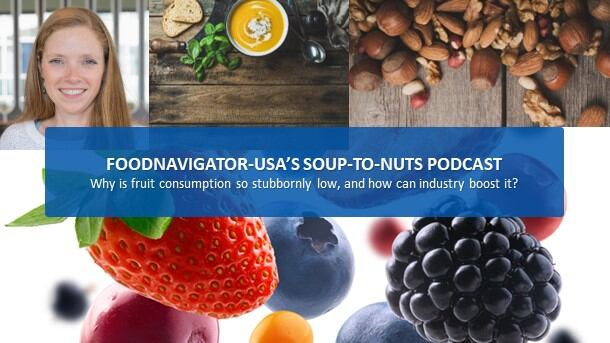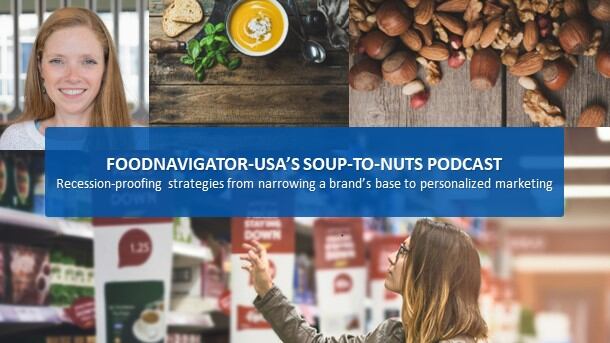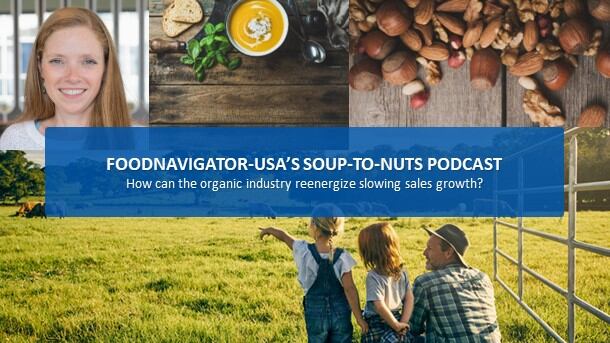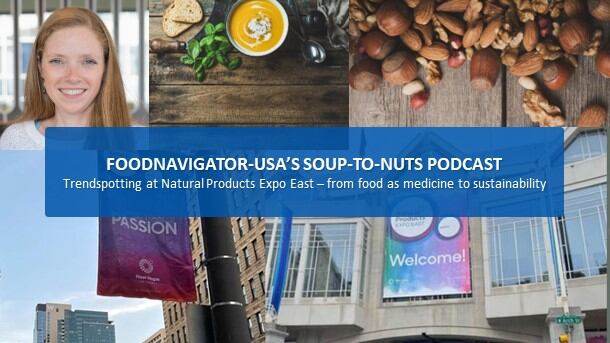According to the Produce for Better Health Foundation’s 2020 State of the Plate report, which is published every five years, the average US adults eats just 1.6 cups of the recommended 2 to 4 cups of vegetables a day and less than 1 cup of the recommended 1.5 to 2.5 cups of fruit a day. As if this weren’t bad enough – these numbers are dropping … fast.
PBH’s report, conducted by The NPD Group, found since 2004, vegetable consumption frequency dropped 16% with a dip of 4% in the past five years, and juice consumption is down 15% since 2004, including 8% in the past five years. And while fruit eating occasions are up 10% between 2004 and 2020, it wasn’t enough to overcome net declines.
The decline in produce consumption comes against a backdrop of increased awareness about the role nutrition plays in health and wellness and a stated desire by many Americans to eat more nutrient-dense, fiber-rich produce.
So, what gives? Why is fruit and vegetable consumption so stubbornly low? And what can industry do to help reverse this trend? Weighing in on the challenges and opportunities facing the segment in this episode of FoodNavigator-USA’s Soup-To-Nuts Podcast, are stakeholders from across the fruit industry gathered at the Food Nutrition Conference & Expo in Orlando last month, including the family-owned wild blueberry brand Wyman’s, the prune and apricot marketing cooperative Sunsweet Growers and the Northwest Pear Bureau.
[Editor’s note: Never miss another episode of FoodNavigtor-USA’s Soup-To-Nuts podcast – subscribe today.]
‘There’s just a lot of misinformation and fear mongering around fruit’
While most Americans are taught from an early age to eat their fruits and vegetables, Charlotte Martin, a registered dietitian nutritionist that works with Wyman’s, noted messaging about the health benefits of both – but especially fruit – has become muddled in recent years by diet trends and the demonization of sugar and carbs.
“There’s just a lot of misinformation and fear mongering around fruit. Being on social media a lot, I hear it all the time. People saying that fruit is too high in sugar, it’s too high in carbs … it can’t be incorporated into a healthy, balanced diet. And I think this got even worse with the popularization of the keto diet,” which severely restricts the types and amounts of fruit someone can eat, Martin explained.
Nikole Williams, who helps with PR for the Northwest Pear Bureau, agrees that concern about sugar is negatively impacting fruit consumption, but she stresses that the sugar naturally found in whole fruit isn’t the same as added sugar in many processed foods – a fact that stakeholders need to better communicate to consumers.
“Food is like a symphony, and you need every single instrument to make it work. So, if you just had the one instrument every day, all day long, it wouldn’t work. It’s working together – so [the combination] of natural sugar fructose, the fiber, the vitamin C, the potassium” that makes fruit a healthy choice even though there is sugar, she said.
Williams said she also believes that fruit consumption has fallen off over the years in part because people have become acclimated to the flavor intensity of processed foods as well as the convenience packaged foods.
Increased reliance on packaged food also is contributing to decline in fruit and vegetables because consumers often believe they have more of each in them than they actually do – which Patrick Carroll, VP of marketing at Jasper Wyman & Son, says may deter Americans from actively seeking out supplemental produce.
Finally, Stephanie Harralson, director of marketing at Sunsweet Growers, hypothesized the consumption of fruit fell in the years leading up to the pandemic in direct proportion to the rising popularity of specialty coffee – an unexpected but impactful correlation.
She explained that while many people had a piece of fruit with a plain cup of coffee or tea in the morning, many specialty coffee drinks with added whiteners, toppings and flavored syrups are more filling – crowding out fruit.
Convenient and frozen options could boost fruit consumption
To combat the decline in consumption over the years, fruit producers and manufacturers of fruit-based products have stepped up communication about the nutrient density and health benefits of fruit – a strategy that Carroll says resonated with consumers early in the pandemic and helped boost sales slightly, even if not enough to offset the overall decline in recent years.
Sunsweet also saw a spike in sales of during the pandemic of prunes as consumers looked for and learned about nutrient dense products that supported their immunity and overall health. But, Harralson added, the trick will be maintaining and continuing to grow these sales as fear of the pandemic continues to ebb.
“We saw a huge growth during COVID of people trying prunes for the first time” and in doing so discovering their health benefits – ranging from digestion to immunity boosting, all benefits that Harralson said consumers continue to want even as the threat of the pandemic eases.
One way that both Sunsweet and Wyman’s are hoping to maintain and further boost consumption of fruit in the coming years is by offering more convenient products that better align with modern consumers’ lives.
For Sunsweet, Harralson said, that means offering more on-the-go options, including individually wrapped prunes, fruit packs, and a new line of Sierra Trail Bites that blend prunes, dates, almond flour, nuts and seeds for fiber- and protein-packed snack with no added sugar.
Sunsweet is also expanding its prune juice offerings to include a blend of lemonade and prune juice, which Harralson described as Sunsweet’s take on an Arnold Palmer.
Wyman’s also is making it more convenient to eat fruit with the recent launch of its Just Fruit & Greek Yogurt Bites and Just Fruit & Banana Bites, which Carroll explains blends small pieces of flash-frozen fruit and Greek yogurt pellets in a single-serve cup.
Encouraging fruit as an ingredient, not just a standalone occasion
For Sunsweet, the potential to swap prunes as a better-for-you alternative to other common ingredients in snacks is a high priority that Harralson says the cooperative is exploring.
“We do see a huge potential in snacks and other foods that incorporate prunes – it is a really great ingredient for a lot of different reasons,” including the ability to use as a binder in gluten free snacks and a replacement for added sugar and fat.
Sunsweet also is working with influencers and dieticians to show consumers how they can incorporate prunes into more dishes at home – including a few unexpected places, like hummus.
Carroll notes Wyman’s also is working with nutritionists and influencers to promote the use of blueberries as ingredients in better-for-you recipes, as well as partnering with other key gatekeepers, including retailers and schools.
The children are the future for fruit consumption
Reaching children – whether through school or other outlets – will be key to reversing long-term fruit consumption trends, agrees Williams, who lifted up the work of schools in this area.
“I think having kids know the taste and like the taste of fresh fruits and vegetables and getting in the habit of grabbing a pear or an apple, a banana, carrot sticks, whatever as they are running out the door or coming in, instead of these ultra-packaged things” will help lay the foundation for increased consumption going forward, she explained.
Other stakeholders, including the government, public health advocates and non-profits also are exploring innovative ways to boost consumption of fruits and vegetables, including produce prescriptions and medically tailored meals that are reimbursed by insurers or partially funded by benefit programs. If you are interested in learning more about these strategies and the growing role of food as medicine, register for FoodNavigator-USA’s upcoming free digital summit – Futureproofing the Food System at foodnavigatorusasummit.com.





